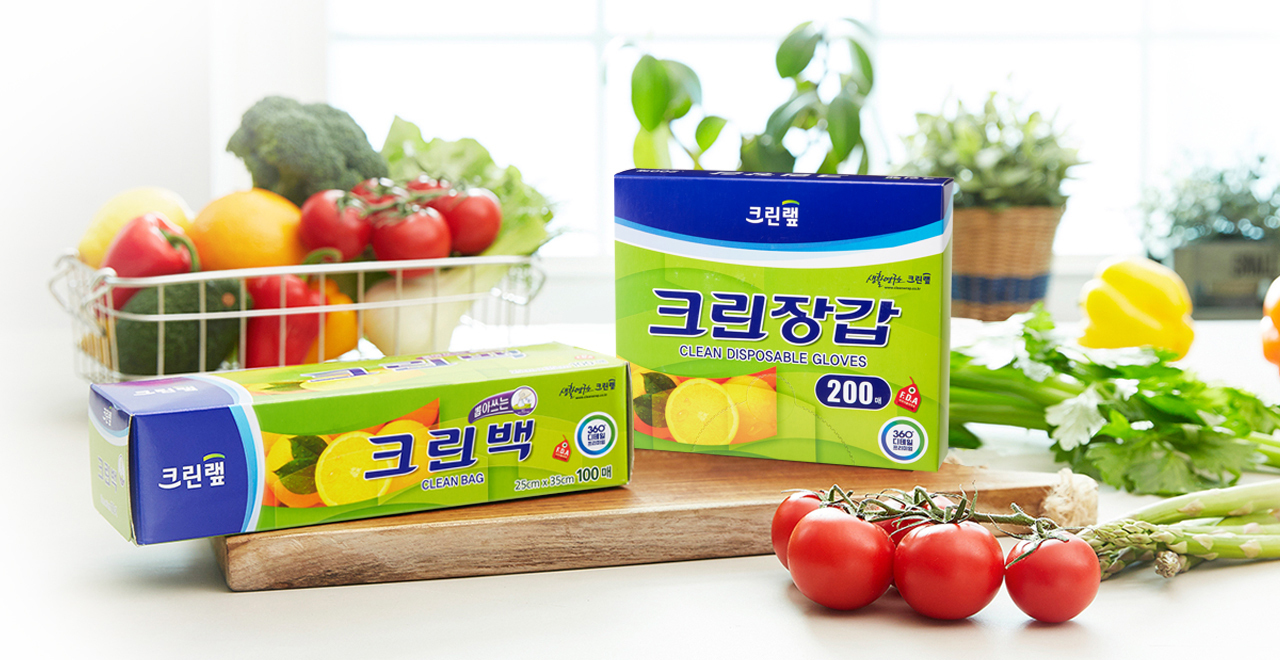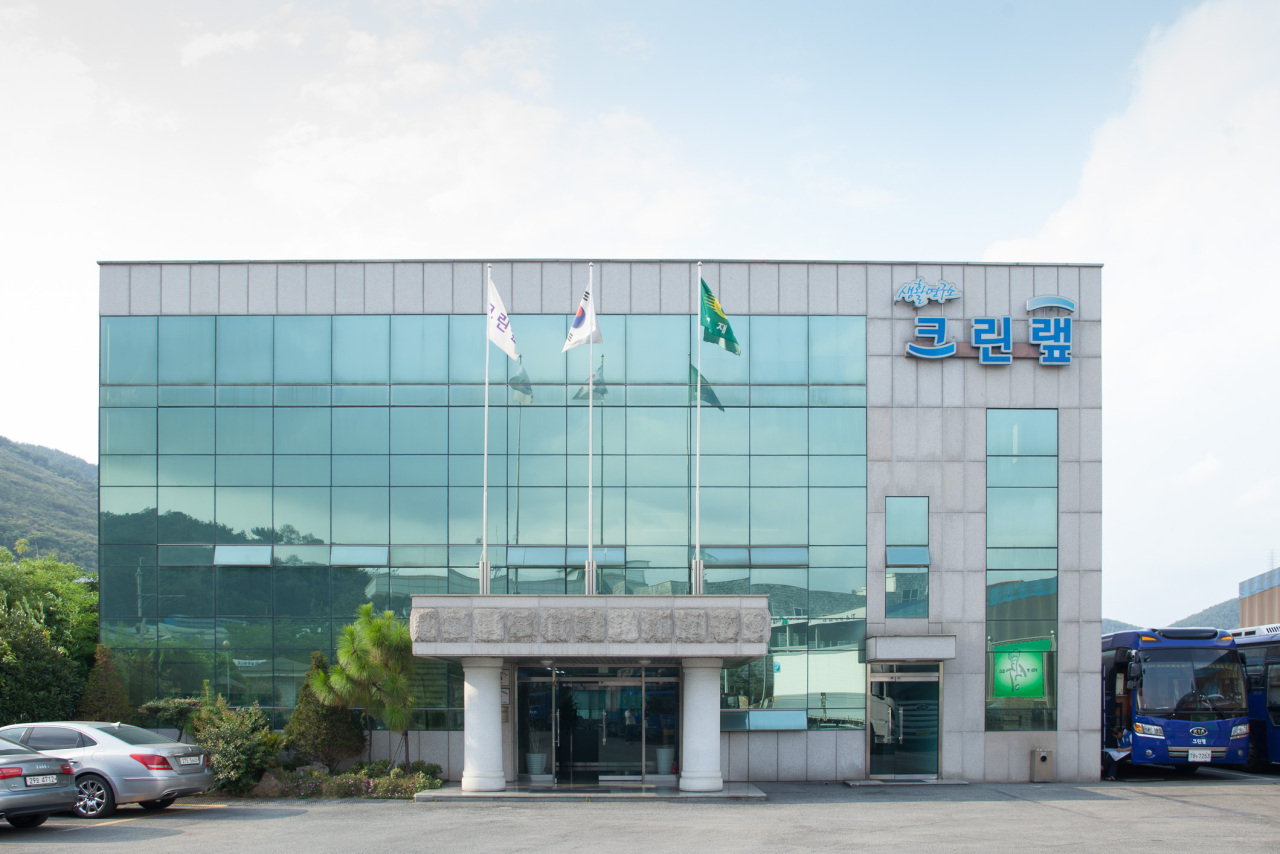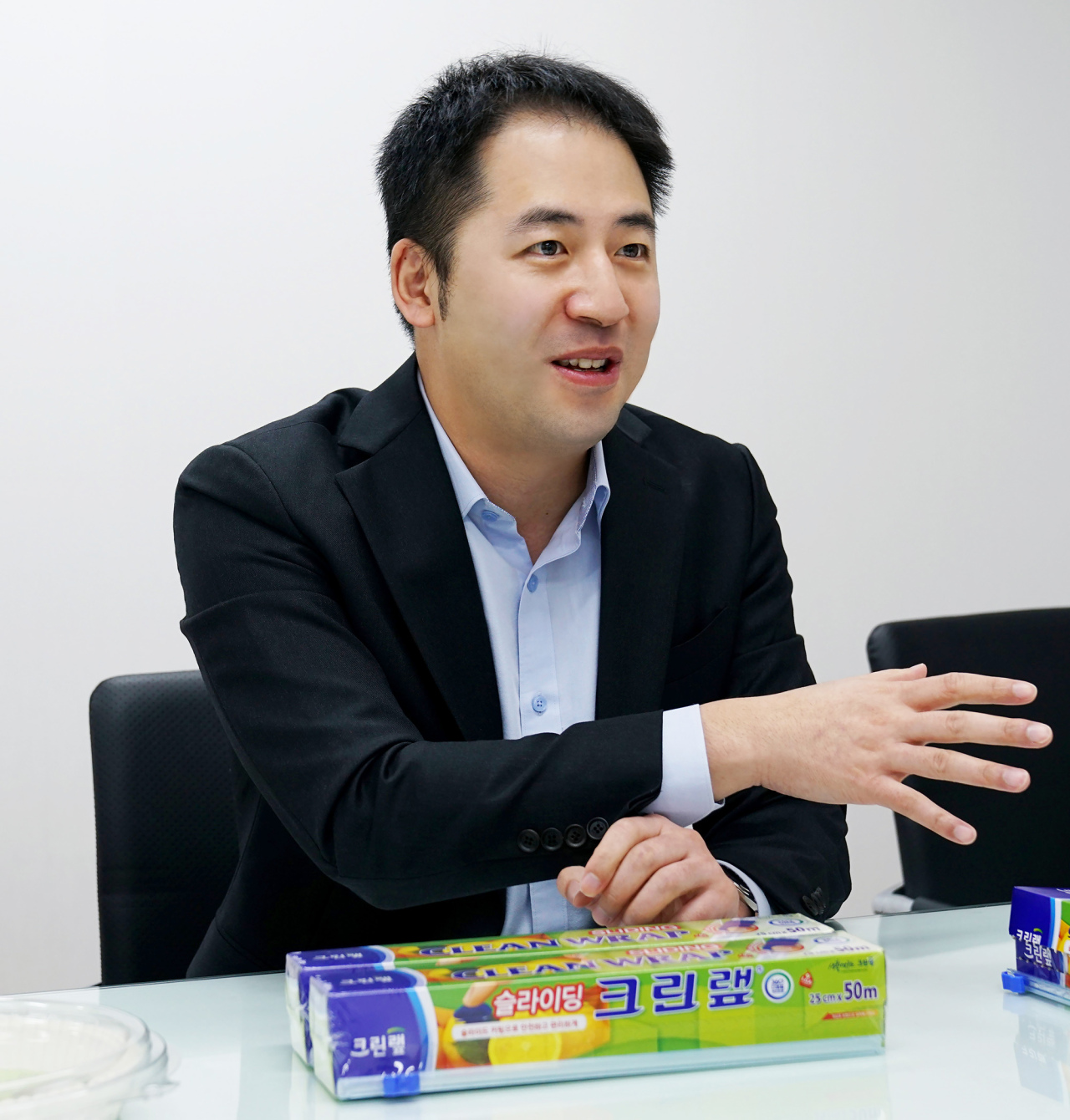
Cleanwrap’s Clean Bag and Clean Gloves (Cleanwrap)
Although indispensable in many peoples’ everyday lives, it is uncommon for a plastic bag producer to receive a nationwide attention. But when the country geared up for a national general election in April, Cleanwrap, a leading food packaging company, came into the spotlight as it supplied tens of millions of sanitary gloves to help execute the world’s first legislative election in the coronavirus era possible.
To assist in the government’s strict prevention efforts, Cleanwrap supplied 1.25 million packs of its sanitary gloves (or 60 million gloves) for over 29 million voters to wear as they gathered at polling stations across the country to cast their votes on April 15.
Adding to the heightened interest in the company, growing concern over hygiene has led the 37-year-old company to a new heyday. In the first half of 2020, Cleanwrap recorded 13 billion won ($10.9 million) in operating profit, up 61 percent from the same period last year.
The figure easily exceeds the company’s entire operating profit made last year, which was 10.4 billion won, and sales increased by 14 percent on-year to post at 65.8 billion won, the company added.
The COVID-19 outbreak has obviously played a role in the company’s sales increase this year. But Cleanwrap has seen continuous growth over the past few years, building on its reputation as the household name for cling films and plastic bags over the past decades.
In all kitchen drawers Cleanwrap was founded by late Jeon Byung-soo in July 1983 and offered the country’s first nontoxic cling film.
The founder and former CEO, who passed away in June at the age of 90, was a Japanese Korean born in Geochang, South Gyeongsang Province.
Jeon moved to Japan with his family at the age of 10. In the early 1970s, when he was in his 20s, he received attention when he started a waste oil refining business in Japan.
It was around that time that the young entrepreneur learned that cling films commercialized in South Korea were all made with polyvinyl chloride (PVC), a major source of phthalate, which was a known carcinogen.
With an aspiration to provide a nontoxic wrapping material, Jeon moved back to Korea to establish Cleanwrap in 1983. The next year, he was able to roll out the country’s first polyethylene (PE) cling film, dubbed Cleanwrap, developed together with a Japanese engineer.
The PE-based product proved its worth at the time, to receive patents in countries outside of Korea, including in Australia, China and Japan, for its nontoxic manufacturing method. The company also received approval from the US Food and Drug Administration to commercialize in 1988.

Cleanwrap headquarter in Gimhae, South Gyeongsang Province (Cleanwrap)
Despite its reach, Jeon’s business struggled to lure customers in the beginning because he had to compete against dominant players in the market such Lucky GoldStar’s wrap product, Lucky Wrap, which is now produced by LG Chem.
With debt piling, Jeon considered going back to Japan. But then, a controversy sparked over the safety of the PVC-based plastic wraps in the late 1980s. Already having proven its safety by authorities overseas, Jeon’s Cleanwrap gained popularity as a less harmful substitute, and the company turned a profit for the first time in 1990.
Since then, Cleanwrap has grown, and now boasts a 70 percent market share in South Korea. The brand name is also used for similar products. The company has expanded its product lineup, to launch Clean Bag and Clean Gloves, which became well known flagship products.
For instance, more than 290 million packs of Clean Gloves have been sold since their launch in 1997.
At the same time, Cleanwrap made a foray into the global market. Tapping into China in 1993, the company was the top product in its category in terms of the market share there in the 1990s and early 2000s.
Now, the company exports to 28 countries around the globe, including the US, Russia, Vietnam, China and Australia. According to the company, 44 percent of its sales overseas come from Southeast Asia.
Leap into new businessesAfter running the company for decades, Jeon stepped down to pass the position to his son Jeon Ki-young in 2005. Taking the helm, the younger Jeon led the company to expand its product lineup into daily necessities, such as frying pans and butane gas.
In July 2018, the incumbent CEO Seung Moon-soo was appointed to lead the company. Seung, who is Jeon’s cousin, had led a business consulting firm specialized in China, and saw there was room for improvement in Cleanwrap’s management, the company explained.
Jeon remains as the major stockholder of Cleanwrap, with 76.36 percent.

Cleanwrap CEO Seung Moon-soo (Cleanwrap)
Looking at the products the company rolled out to increase sales, Seung found that they also increased costs. After taking on his new role, Seung decided to give up on some of the items, raising the operating profit by 129 percent in the latter half of 2018.
Simultaneously, Seung, who also had experience developing electronic materials at Doosan Group, sought to start a new business in optical films. In December, Cleanwrap established Clap, a startup focused on manufacturing optical films.
In June 2019, Clap signed a technology transfer and license agreement with BASF, a leading chemical company for an optical film technology used in coating OLED Under Panel Sensors, the company said.
The 41-year-old CEO has since been ambitious to improve the company’s performance. In several media interviews, Seung stressed that it was important for the company to not settle for the industry leader title in the plastic film market.
Cleanwrap said it is focused on coming up with more environmentally friendly products, and has been using biomass synthetic resins extracted from sugar cane to produce its plastic products.
It is preparing to commercialize products produced from the biodegradable materials it developed, to add to global efforts to reduce marine pollution caused by micro plastics, according to Seung.
Acknowledging that almost 90 percent of its sales come from brick-and-mortar stores, the young leader also addressed the need to expand its distribution network.
In July, Cleanwrap open its official online store.
By Jo He-rim (
herim@heraldcorp.com)







![[KH Explains] How should Korea adjust its trade defenses against Chinese EVs?](http://res.heraldm.com/phpwas/restmb_idxmake.php?idx=645&simg=/content/image/2024/04/15/20240415050562_0.jpg&u=20240415144419)
